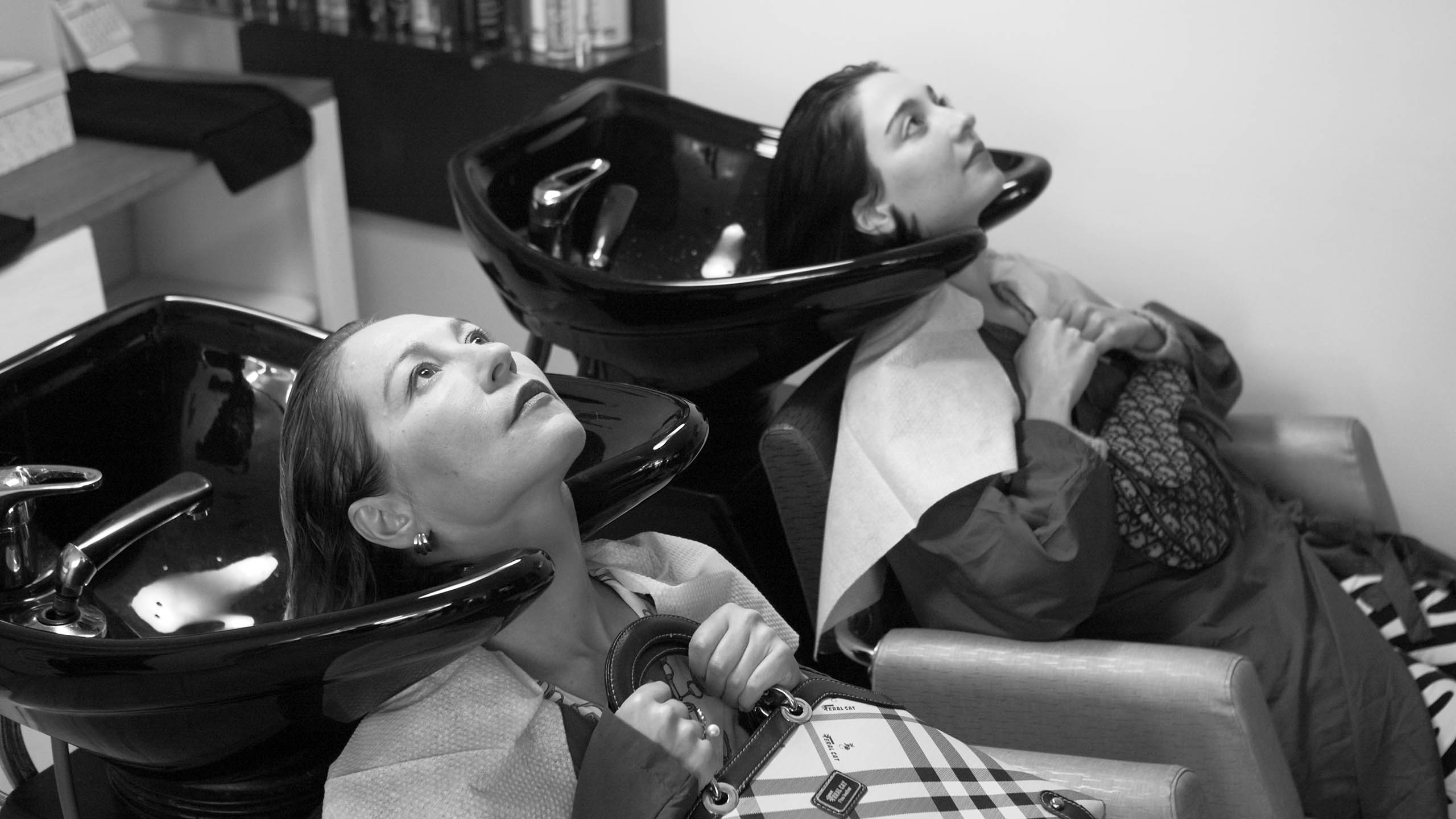Exit Poll
El Planeta Heralds Amalia Ulman as an Invigorating New Cinematic Voice

Ale Ulman and Amalia Ulman appear in El Planeta by Amalia Ulman, an official selection of the World Cinema Dramatic Competition at the 2021 Sundance Film Festival. Courtesy of Sundance Institute | photo by Carlos Rigo Bellver.
All photos are copyrighted and may be used by press only for the purpose of news or editorial coverage of Sundance Institute programs. Photos must be accompanied by a credit to the photographer and/or ‘Courtesy of Sundance Institute.’ Unauthorized use, alteration, reproduction or sale of logos and/or photos is strictly prohibited.
This year’s Sundance Film Festival is its first post-pandemic, as last year’s event pre-dated the closures that would follow the rampant spread of the virus. While the blunt-force devastation of not being able to sip Vida Tequila alongside self-anointed Queen of Sundance Lisa Barlow of Real Housewives of Salt Lake City knocks us off our equilibrium, there are other elusive dragons to chase. For example, this year’s roster heralds the arrival of an invigorating new cinematic voice in the form of Amalia Ulman, whose debut feature El Planeta premiered Saturday across digital screens worldwide.
An established young conceptual artist, Ulman is known for her digital, video, and performance pieces that investigate feminine projections through contemporary media. What may elude some critics is the fact that Ulman has been an enigmatic and oftentimes baffling figure in the post-internet art world over the last decade. She first caught my attention with her “Social Strata Lingerie” as featured on DIS Magazine. Her durational series of denatured selfies in her series Excellences & Perfections further cemented her as an astute practitioner of the long con it takes to make a point—the foremost characteristic of an auteur. Described as a scripted, semi-fictional makeover, the series depicted Ulman undergoing false plastic surgeries, learning to pole dance, adhering to strict diets, and creating a stylized facsimile for a life of halcyon consumerism. It was the type of incisive sociological critique that was either alienating or funny, depending on where you fall on the venn diagram of sensitivity. It became something of a landmark work for the artist, who’s since been showcased everywhere from the Tate to the New Museum, the Frieze Art Fair, Evelyn Yard, Whitechapel Gallery, and other fine art spaces. Ulman’s attraction to the fantasy of display even extends to her Wikipedia page, which features a headshot reminiscent of a Fortune 500 executive photo, and her personal webpage, which is designed to resemble the aggregation sites of Web 1.0.

Amalia Ulman, director of El Planeta, an official selection of the World Cinema Dramatic Competition at the 2021 Sundance Film Festival. Courtesy of Sundance Institute | photo by John Dlugolecki.
All photos are copyrighted and may be used by press only for the purpose of news or editorial coverage of Sundance Institute programs. Photos must be accompanied by a credit to the photographer and/or ‘Courtesy of Sundance Institute.’ Unauthorized use, alteration, reproduction or sale of logos and/or photos is strictly prohibited.
This background is considerable when approaching Ulman’s feature film debut, which disarms with its forlorn ease and charms, with its adherence to the formalism of the nouvelle vague. El Planeta tells the story of Leonor (Ulman), a young creative returning home to the coast of Gijón, Spain (Ulman’s actual hometown) to stay with her mother, María, (Ulman’s actual mother, Ale). Having gone to school in London and working in fashion as a stylist, Leonor is home following a financial crash, the semi-abandoned seaside village providing an unnerving concordance with the bereft landscapes of shuttered businesses post-COVID. When she is offered a big job to style Christina Aguilera for a magazine spread in New York, she hocks her sewing machine to afford the flight. Meanwhile, her zany and terminally resilient mother racks up bills all over town, charging her purchases to an unseen male admirer who might be made up. Ulman is a natural both in front of and behind the camera, the action of the film plodding along at a brisk, humorous pace, never relenting its self-aware nods toward the perils and procedures of contemporary femininity. The film begins, for example, with a meeting between Leonor and a potential sex work client. We see them haggle over fees before she decides maybe a blowjob isn’t worth the money she needs for a book she has her eye on. When we meet María, she is urging Leonor to eat a cookie. “One more cookie and I’ll have a poor person’s body,” Leonor dryly retorts. She turns up the kitchen radio when she hears that Martin Scorsese is coming to town, to attend a local film gala. She retreats to a photogenic corner to take selfies. It quickly occurs to you that Ulman has effortlessly touched on sexual politics, prostitution, body image, cinema, narcissism, celebrity, fashion, and witchcraft all in the first 15 minutes of her movie. The action of the film continues to follow Leo and María as they galavant around their seaside town pulling off minor grifts with utter disregard for the consequences, a consumer liberation that climaxes in a hilarious and sumptuous sequence in which they give themselves makeovers at a major department store.
The film’s triumphs lie both in its visual command and the sparkling chemistry between Ulman and her real-life mother, the sort of unforced rapport that helps for a first-time filmmaker. It helps that Ulman Sr. is also, unquestionably, a natural performer herself. In provided notes, Ulman describes how the film came together on a shoestring budget, cinematographer Carlos Rigo Bellver shooting with Blackmagic 4K, which typically relies on costly color correction. “The weather in Gijón generally makes things look black and white even when you shoot in color, so it made sense to me to lean into that and have some control over the picture,” Ulman said. It was a brilliant choice that lends a beautiful timelessness to the film, bolstered by a jovial and classically inspired score by New York’s underground noisemaker DJ Chicken (Burke Battelle). Choices like these are the sort that once defined the great indie discoveries out of Sundance. For me, the dream of Sundance will always be imagining that time when figures like Todd Solondz and Jim Jarmusch began their careers by drawing deeply idiosyncratic stories from beyond the fringes, tapping into their ingenuity and creative communities to invent a new dream of cinema. Ulman, in doing so, has created something both personal and profound. It’s thrilling to imagine what she’ll do with more.






